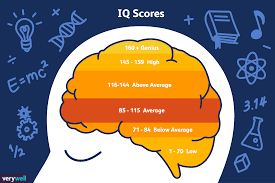This is an automatically translated article.
Learning disability is a term that refers to disorders in the acquisition and use of reading, writing, and math skills in children. The disorder is an intrinsic disability of the individual, whose cause is believed to be a defect in central nervous system function.
1. What is a learning disability?
Children with learning disabilities are children who have problems with the acquisition and use of reading, speaking, writing, and math skills. Learning disabilities include a wide range of disorders that affect the way the brain processes information and make it difficult to grasp certain concepts. This condition can vary in severity, depending on the specific case.
Children with learning disabilities often have normal or above-normal intelligence but struggle with some learning problems. Children can identify individual letters easily, but putting them together to read back can be confusing. Tying shoelaces or putting puzzle pieces together for a child with a learning disability can be confusing for you or your child to be able to work through a simple math problem.
Because children with learning disabilities have difficulty completing certain tasks, they often feel frustrated, angry or depressed, and they may have a bad self-image. Children with learning disabilities may just want to know what they want to accomplish, what they want to say or write or do, but cannot find a way to do it.

Trẻ em khuyết tật học tập thường cảm thấy thất vọng, tức giận hoặc chán nản
2. What causes learning disabilities?
Most experts believe that the cause of learning disabilities is central nervous system problems that affect the way the brain receives, interprets, and sends information. Scientists have yet to pinpoint the exact cause, but many believe that learning disabilities are related to minor abnormalities in the way the brain develops. Learning disabilities are linked to genetic problems. Babies can also have learning disabilities from the mother's abuse of alcohol or drugs during pregnancy or serious problems during labor and delivery.
3. Identifying learning disabilities
It is difficult to say whether learning disabilities are common or not because the diagnosis of learning disabilities is controversial. Many experts argue that the problem is overdiagnosed and that only severe cases are officially diagnosed. They argue that no brain system works perfectly, so children absorb problems at different rates and many problems will be solved over time.
However, some other experts believe that, even when children have small problems in learning, they need attention from the very beginning in order to promptly help and support children. The National Institutes of Health estimates that 2.7 million school-age children (about 6% of all school-age children) have a learning disability. A child can have one type of disability or a combination of other disabilities. Because diagnosing a learning disability is difficult, if you are concerned about your child, consult professionals.

Có khoảng 6% tổng số trẻ em trong độ tuổi đi học bị khuyết tật học tập
4. Classification of learning disabilities
Learning disabilities are generally classified into three categories: Speech disorders or language disorders; problems related to skills such as reading, writing and math; and a variety of other disorders, such as difficulties with coordination, motor skills, or memory.
Some children have learning disabilities with obvious manifestations, such as dyslexia or disorders that impair reading and math, respectively. But some other children may have a combination of different disorders.
Children with learning disabilities have difficulty following directions, standing still, and following through on specific tasks. They can also be physically awkward, prone to tripping or bumping into things.
Many people confuse attention deficit disorder with learning disorder. Children with attention disorders often show signs of being easily distracted and restless. This is not a learning disability. Attention disorders are a separate problem and are also related to abnormalities in the brain. An estimated 25 to 35 percent of children have both a learning disability and an attention deficit disorder.
5. Diagnosing a learning disability
Learning disabilities are often discovered in children during the first years of school, when a child learns to speak, read and write. Teachers are often the first to notice this problem. However, an accurate diagnosis requires a formal evaluation by a specialist, preferably a pediatric psychologist, neurodevelopmental pediatrician, or psychiatrist with expertise in the field. this field. These assessments are usually not done until the child is 5 to 7 years old and are repeated as the child gets older. Even if you notice problems earlier in your child, experts generally agree that it's impossible to draw firm conclusions while a child is in kindergarten, because learning styles and speeds vary greatly from child to child. the first years of life.

Chứng khuyết tật về học tập thường được phát hiện khi trẻ bắt đầu học nói, đọc và viết
6. What to do when a child has a learning disability?
After an accurate diagnosis from professionals, children with learning disabilities are often eligible for special education programs. This may include speech therapy, physical therapy, and improved motor skills. There are special private schools for children with learning disabilities, but these are often quite expensive.
Learning disabilities are often permanent and do not go away. But there are ways to help a child make up for a disability and learn to solve problems. Educators have developed special teaching methods and curriculum tailored to the needs of children.
In addition, children with learning disabilities also need emotional and psychological needs addressed. Children with learning disabilities often feel "stupid", clumsy, or prone to failure. Many parents, teachers, and experts agree that it's important to emphasize a child's strengths and try not to focus too much on the problem. All children have natural gifts and abilities. A child who has difficulty learning to read may be good at drawing, writing poetry, doing science experiments, or kicking a soccer ball. Children with learning disabilities need to have their self-esteem raised, praise for their abilities and opportunities to shine.
In fact, in Vietnam today, in a recent survey by the Vietnam Institute of Educational Sciences, between 5 and 8% of students were identified as having learning difficulties in one or more of the schools. Core academic skills include reading, writing, and math. This figure is compatible with Snowling's international study which found that about 4-7% of children are 18 to 24 months behind in school age than expected.
Currently in Vietnam there is a lack of tools to identify students with learning disabilities. To determine a child's intelligence quotient (IQ), testers often use the Raven or WISC-IV standardized Vietnamese version of the test.
Most students with learning disabilities have completely normal intellectual performance (intelligence quotient - IQ), have no problems with cognitive ability, but they have particular difficulties in learning. the application of school skills to acquire knowledge.
These difficulties manifest in different skills as a student may have difficulty with reading but not with writing and math or vice versa. There are also children who have difficulty with two or more skills. To a great extent, not all children have the same difficulty.

Hầu hết các học sinh khuyết tật học tập có biểu hiện hoàn toàn bình thường về mặt trí tuệ
The quality of reading, writing and math is completely dependent on the individual child's condition. Children with learning disabilities may not have an accompanying disability/difficulty but may also have other disabilities. In particular, children in the period from 6 months to 3 years old are very susceptible to respiratory problems, respiratory infections, skin diseases and gastrointestinal infections... Parents need special care. Pay special attention to the care and provision of adequate nutrition for children. The pediatric department at Vinmec International General Hospital is the address for receiving and examining diseases that infants and young children are susceptible to: viral fever, bacterial fever, otitis media, pneumonia in children With a system of facilities, modern medical equipment, sterile space, minimizing the impact as well as the risk of disease spread, Vinmec will bring satisfaction to customers. and is highly appreciated by industry experts with:
Gathering a team of leading pediatricians: Including leading experts with high professional qualifications (professors, associate professors, doctors, Master's degree), experienced, worked at major hospitals such as Bach Mai, 108.. The doctors are all well-trained, professional, conscientious, knowledgeable about young psychology. In addition to domestic pediatric specialists, the Department of Pediatrics also has the participation of foreign experts (Japan, Singapore, Australia, USA) who are always pioneers in applying the latest and most effective treatment regimens. . Comprehensive services: In the field of Pediatrics, Vinmec provides a series of continuous medical examination and treatment services from Newborn to Pediatric and Vaccine,... according to international standards to help parents take care of their baby's health from birth to childhood. Advanced techniques: Vinmec has successfully deployed many specialized techniques to make the treatment of difficult diseases in pediatrics more effective: neurosurgery - skull, stem cell transplant blood in cancer treatment. Professional care: In addition to understanding children's psychology, Vinmec also pays special attention to the children's play space, helping them to play comfortably and get used to the hospital's environment, cooperate in treatment, improve the efficiency of medical treatment.
Please dial HOTLINE for more information or register for an appointment HERE. Download MyVinmec app to make appointments faster and to manage your bookings easily.
Reference source: babycenter.com













